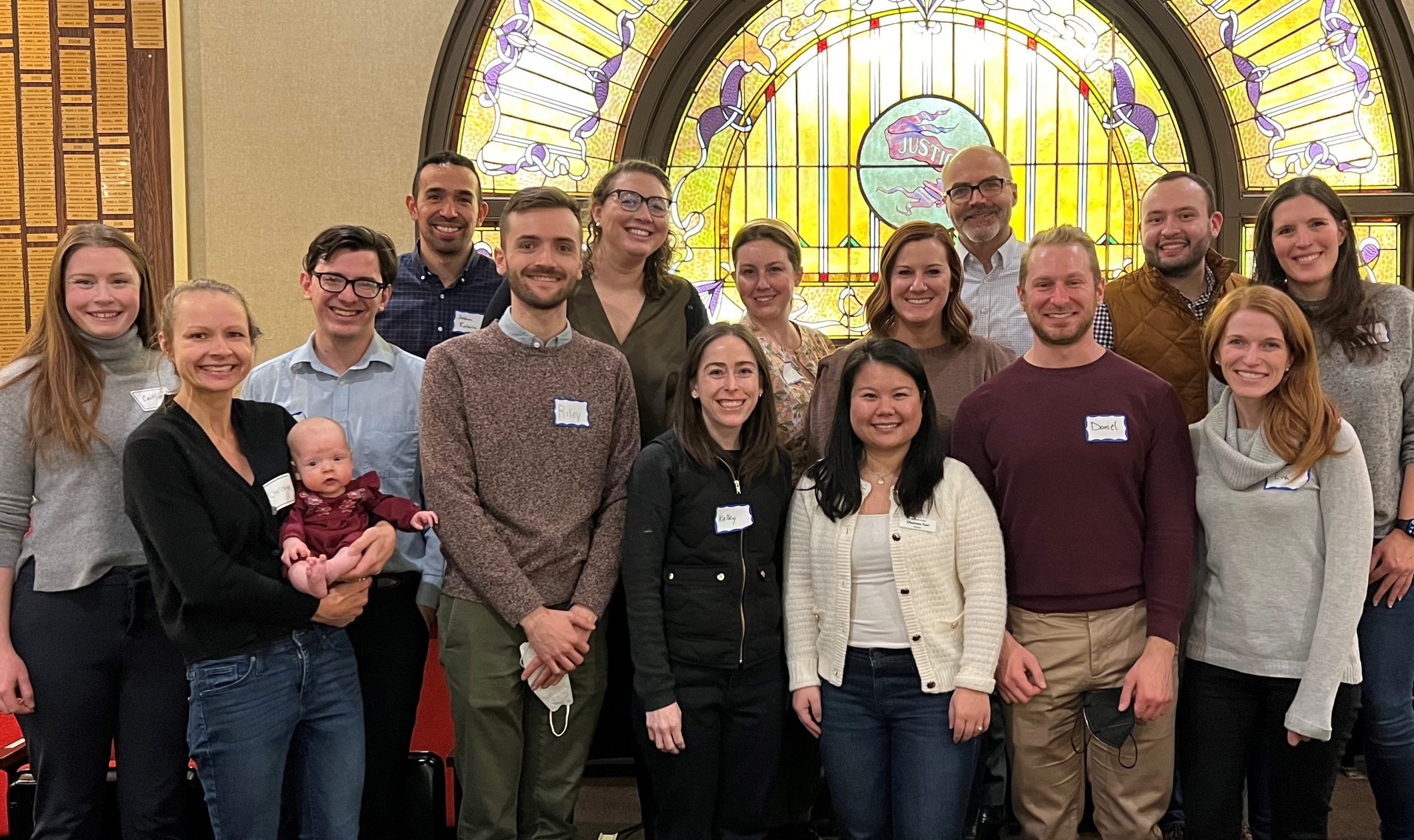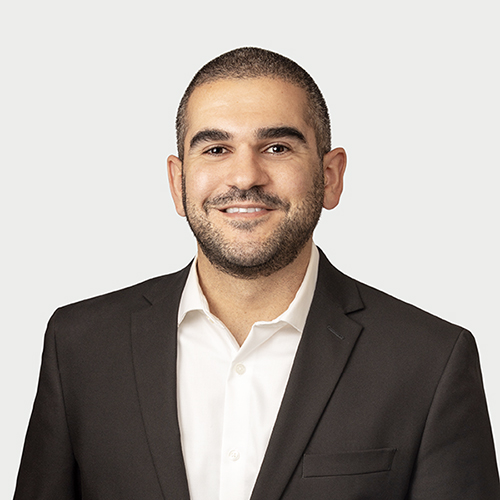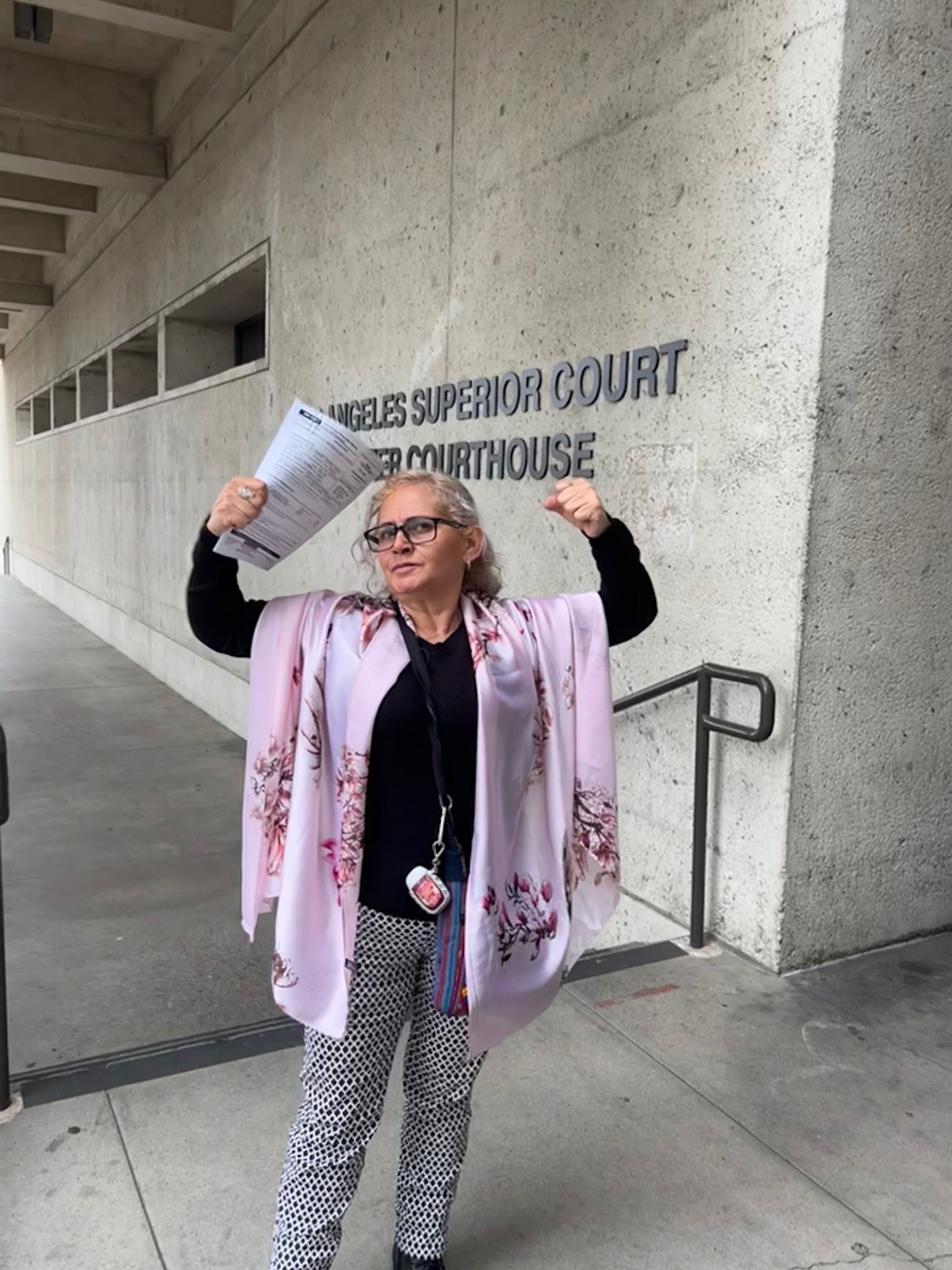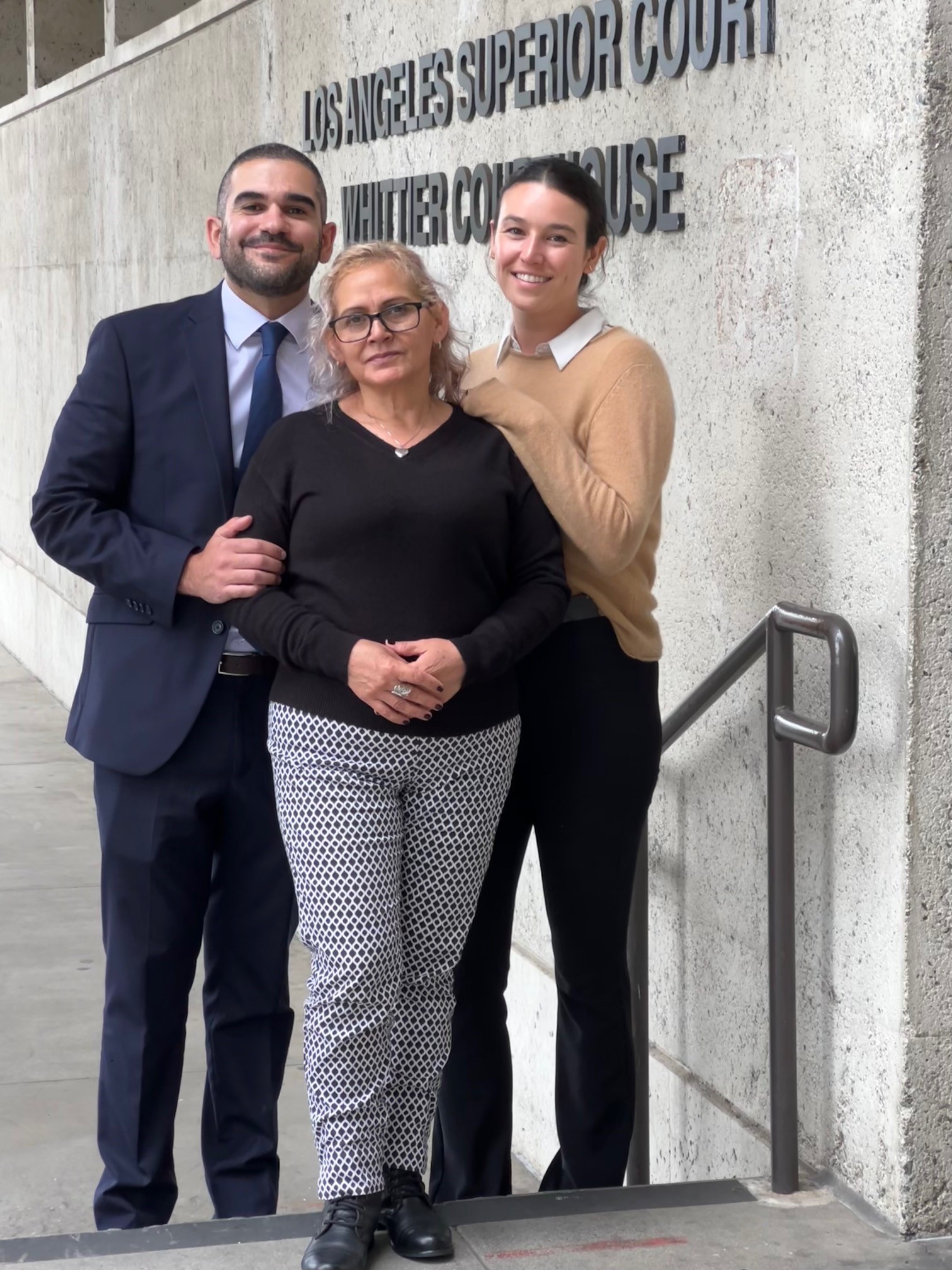
|
| September 4, 2024 |
Gibson Dunn’s pro bono practice empowers our attorneys to use their skills to make a positive impact on our communities, tackle the most critical social justice issues of the day, and fight for justice and equality under the law. Our pro bono practice brings together lawyers and skills from across all the Firm’s offices and practice groups, resulting in a diverse practice that reflects the varied interests of our nearly 2,000 attorneys, while also being responsive to the most pressing needs in our communities. In addition to the diversity of our practice, we take great pride in the volume of the work and significance of the impact we achieve by coming together across the Firm. In 2024, we have billed more than 100,000 hours to pro bono work in the first half of the year alone. We hope this newsletter provides some insight into the incredible work of our colleagues around the Firm.
Criminal Justice and Post-Conviction Relief
Post-Conviction Relief for Juvenile Offenders
Beginning in 2022, Gibson Dunn has partnered with Loyola Law School’s Juvenile Innocence and Fair Sentencing Clinic (“JIFS”)—the first law school clinic in the country dedicated solely to juvenile post-conviction sentencing and litigation—to advocate for certain juvenile offenders in connection with their post-conviction applications to the Los Angeles County District Attorney’s Office’s Resentencing Unit. The Resentencing Unit was established in 2020 and pledged to examine up to 30,000 “out of policy” sentences, including up to 7,000 youth sentences. These “out of policy” youth sentences were almost exclusively imposed during a distinct period in California law that violated juveniles’ Eighth Amendment rights to have their age, circumstances, mental health, and potential for rehabilitation factored into their sentences.
In partnership with the JIFS clinic, Gibson Dunn attorneys work closely with the Resentencing Unit to identify pathways to resentencing individuals who were sentenced to lengthy terms of incarceration as children and engage in holistic advocacy on their behalf. Our clients have included “John,” who was sentenced to serve 35 years to life in prison when he was only 15 years old, and who recently was released after serving 18 years in prison. Another client, whose case remains pending, was sentenced to 20 years in prison when he was just 15 years old; he has spent nearly half his life in prison.
Attorneys who have played a significant role in these cases include Arlen Gharibian and Hannah Stone—alumni of Loyola who have taken a lead role in this initiative—as well as Daniel Rubin, Erica Jansson, Ariana Sañudo, Logan Freeborn, Ramona Lin, Lili Italiane, and Monica Van.
|
"Working on [John’s] case over the last two years is my proudest accomplishment as an attorney. Meeting our client, learning about his story, and working toward successfully securing his release was an absolute privilege." |
Arlen Gharibian
|
|
"Working on these cases and with these clients has been the greatest honor and has provided me with some of the most meaningful experiences both as a human and as an attorney. I am grateful for the opportunity to partner with Loyola and JIFS as an alumnus, and for the Firm’s support in bringing this project to life for myself and other Gibson Dunn attorneys." |
Hannah Stone
|
Compassionate Release for Elderly or Ill Individuals
As the U.S. prison population ages, more and more incarcerated individuals are in poor health or at risk of illness due to their advanced age. These individuals, who are both the most expensive to keep in prison and the least likely to reoffend if released from prison, may qualify for compassionate release. Similarly, individuals who suffered mistreatment and abuse by corrections officers while incarcerated may be eligible for a reduction in their prison sentence. Together with Families Against Mandatory Minimums (“FAMM”), the National Association of Criminal Defense Lawyers, and other advocates, Gibson Dunn attorneys are working on compassionate release motions for vulnerable incarcerated individuals and individuals whose excessive sentences would be lower today due to intervening changes in the law. Our clients include a man seeking compassionate release due to a significant medical condition and a man seeking compassionate release due to his age and time served. The teams working on these cases include John Chesley, John Sandoval, Allison Lewis, Nicholas Pulakos, Shannon McAvoy, Geronimo Morales, and Graham Stinnett.
Amicus Briefs in Florida and California Death Penalty Cases
In May 2023, Gibson Dunn submitted an amicus curiae brief in Jackson v. State of Florida, a death penalty case currently pending before the Florida Supreme Court. The petitioner was sentenced to death by a non-unanimous jury after the Florida legislature amended Florida law to permit non-unanimous capital sentencing, making Florida one of only two states that permits non-unanimous capital sentencing. Gibson Dunn, writing on behalf of Florida legislators, the NAACP Florida State Conference, and Equal Ground Education Fund, argued that Florida’s non-unanimous capital sentencing amendment unconstitutionally silences the votes of Black jurors by denying up to a third of jurors the equal right to have their voices heard. In 2020, the U.S. Supreme Court struck down a Louisiana law permitting non-unanimous criminal convictions. Yet only three years later, Florida amended its own law to permit non-unanimous capital sentencing with the explicit purpose silencing “activist” jurors after a perceived incorrect result in a capital case. The Florida legislature’s failure to grapple with the amendment’s unconstitutional impacts on Black jurors—especially in light of the legislature’s recognition that the amendment was not in line with the Supreme Court’s decision—is damning. Because Florida’s non-unanimous jury rule unconstitutionally silences Black jurors and imperils the legitimacy of the judicial process, amici urged the Florida Supreme Court to strike down the amendment. The Gibson Dunn team included Chris Belelieu, Thad Davis, Taylor Cathleen Amato, Kelley Pettus, Diego Wright, and Justin Fishman.
Gibson Dunn also filed a letter in support of California’s Office of the State Public Defender (“OSPD”) petition asking the California Supreme Court to declare the State’s death penalty system unconstitutional in its current form. OSPD’s petition highlights a wealth of studies illustrating dramatic, persistent racial disparities in the death penalty’s administration and argues that race—both of the defendant and of the victim—plays an improper role in death sentences across the State, denying equal protection of the laws. Gibson Dunn represented the Prosecutors Alliance of California, an organization of prosecutors committed to reforming California’s criminal justice system, in filing a letter in the California Supreme Court supporting review. The letter emphasized the strength of the petition’s showing that race is playing an undue part in death sentences across the State and highlighted several aspects of the death penalty system—including the broad discretion prosecutors exercise in deciding when to seek the death penalty and the many opportunities for race to affect the identification and selection of jurors—that suggest those statistical disparities are no accident. In an unusual step following our amicus letter, Attorney General Bonta acknowledged the importance of the question presented and asked the Court to grant review and appoint a special master to oversee development of a full factual record relating to the death penalty’s constitutionality. The Gibson Dunn team includes Doug Fuchs, Eric Vandevelde, Matt Aidan Getz, Jesse Schupack, and Lindsay Laird.
|
"This is a major moment for California’s death penalty. The statistics aren’t new—but the attention the statistics are receiving, including by public officials across the State who have called for a fresh examination of the death penalty’s constitutionality, is certainly not something seen in recent years. So it’s been rewarding beyond measure for our team to represent a group of prosecutors committed to ensuring the fair operation and legitimacy of the criminal justice system in asking the California Supreme Court to take up the issue." |
Matt Aidan Getz
|
Colorado Office of the Alternate Defense Counsel
Over the past several years, Gibson Dunn has provided pro bono services as co-counsel to court-appointed contract attorneys from the Colorado Office of the Alternate Defense Counsel (“ADC”), a state-funded agency that is mandated by statute to “provide to indigent persons accused of crimes, legal services that are commensurate with those available to non-indigents.” At the appellate level, the Firm wrote an amicus brief to the Colorado Supreme Court on behalf of the ADC and the American Civil Liberties Union, arguing that Colorado’s equal protection doctrine applies to sentencing disparities between Colorado state and municipal offenses, barring municipalities from imposing higher sentences than state charges for the same conduct. The Firm also has directly represented indigent defendants in briefing and arguments before the Colorado Court of Appeals and the Colorado Supreme Court.
At the trial level, the Firm recently represented two individuals who were charged in Colorado municipal court. Both cases were successfully dismissed before trial. In one, a young Black man was arrested after he called the police for help. He was charged with possession of a firearm after officers observed an indistinct dark object in his hand. No firearm was ever recovered. However, the young man was held in jail for months until Gibson Dunn and the ADC were able to secure a dismissal of the charges shortly before the winter holidays. One additional case is ongoing, the Firm has been able to provide valuable limited-scope work in several others, and we believe that our recent successes will lead to additional important work in the months to come. Rob Blume and John Partridge have supervised teams of associates including Daniel Magalotti, Al Kelly, Nick Venable, Lauren Trujillo, John Harrison, NoahLani Litwinsella, and Ming Lee Newcomb on these matters.
Voting Rights and Democracy
Amicus Brief in Wisconsin Elections Case
Gibson Dunn recently filed an amicus brief in the Wisconsin Supreme Court on behalf of Common Cause Wisconsin. The case was an expedited direct appeal from the state trial court, with review solely granted on the question of whether the Wisconsin Supreme Court should overrule a 2022 decision that interpreted state law to ban ballot drop boxes. Writing in support of plaintiffs-appellants-petitioners Priorities USA, Wisconsin Alliance for Retired Americans, and William Franks Jr., our brief explained how drop boxes would help ensure that all Wisconsinites would have an equal and full right to vote, no matter their race, income level, or geographic location. The brief explained how, for various groups across the state, drop boxes presented the only way to exercise the right to vote without needless barriers. The brief also argued that drop boxes would decrease reliance on a delay-plagued postal system, which in prior years had effectively disenfranchised some voters whose ballots were lost or arrived after the Election Day deadline. This summer, the court ruled in favor of the plaintiffs, explaining that the Wisconsin statute at issue permitted the use of drop boxes. As a result, election administrators will be permitted to utilize drop boxes for the upcoming election. The Gibson Dunn team included Jason Myatt, Zachary Goldstein, and Narayan Narasimhan.
|
"It was a privilege to represent Common Cause Wisconsin in this suit, ensuring the court understood the impact that drop boxes could have on Wisconsin’s most often overlooked communities. The court’s decision will ensure that every Wisconsinite will have an equal opportunity to make their voice heard in elections moving forward.” |
Zachary Goldstein
|
Lawyers’ Committee for Civil Rights Under Law Election Protection Hotline
In recent election cycles, Gibson Dunn attorneys have volunteered their time to the nonpartisan election protection efforts led by the Lawyers’ Committee for Civil Rights Under Law. Volunteers in this nonpartisan effort staff a call center/hotline to help ensure every voter’s voice is heard. During the 2020 election cycle, for example, more than 90 Gibson Dunn lawyers contributed nearly 2,500 pro bono hours to these efforts. In the days leading up to the election, the Election Protection Hotline received anywhere from 5,000 to 7,000 calls a day. The questions varied in complexity and topic, including calls about voter registration, mail-in ballots, nonresponsive boards of elections, people being turned away at early voting places, COVID-19, voting from overseas or from a nursing home, and voting without a place to call home. The organization also received voter intimidation, suppression, and electioneering reports. As the 2024 election rapidly approaches, we are proud to help staff the hotline once again.
Transactional and Corporate Advice
Brooklyn Nonprofit Merger
In July, Cypress Hills Local Development Corporation (“CHLDC”)—a nonprofit that focuses on housing and community development in the Cypress Hills neighborhood of Brooklyn, New York, and the surrounding communities—merged with United Community Centers (“UCC”), a community organization focused on public health and early childhood development in East New York. CHLDC and UCC had worked closely together for decades to serve the Brooklyn community, with each organization providing services to more than 10,000 residents annually. The merger will enable the combined entity (which has retained the CHLDC name) to leverage combined resources and expertise, thus better serving a larger number of residents with a broader range of services, ultimately enhancing the overall impact on community well-being in East New York. A Gibson Dunn team, led by Marwan Azzi, Sam Shapiro, and Chris Ayers, advised CHLDC throughout the merger process, which involved liaising with the state attorney general’s office and coordinating with various regulatory agencies. The team also included Janine Durand, Sylvia Peng, and Jasmine Vitug on corporate, Matthew Donnelly and Laura Pond on tax, Gabrielle Levin and Imani Forbes on employee compensation and benefits, and Daniel Kelly and Chris Trafford on real estate.
|
"Working with the CHLDC team was a uniquely rewarding experience for myself and the rest of the team. The more we understood the breadth of services provided by both organizations and how important these services were to the East New York community, the more we were inspired to do everything we could to help them get the deal to the finish line. While we are thankful to Gibson Dunn for allowing us to take on such a rewarding and meaningful project, we are confident that the leadership teams at both organizations were even more grateful for the services they received over the course of a long and challenging process." |
Sam Shapiro
|
Ukraine-Focused Charity in Germany
Svoii is a Munich-based association led by a young and energetic team of Ukrainian volunteers. Svoii is pursuing a wide range of Ukraine-related charitable purposes, including the integration of Ukrainian refugees in Germany, aid for war victims, support of rescue and lifesaving activities in Ukraine, and cultural exchange between German and Ukrainian societies. The Svoii team is great at what they do and has been an inspiration to work with—but they needed some legal help setting up Svoii as nonprofit organization under German law. Nikita Malevanny and Jan Schubert provided advice regarding incorporation as a registered nonprofit association.
California Cave Survey
The caves of California are an important resource for California, providing significant minerals, a home to rare and endemic species, paleontological resources, karst and volcanic hydrology, recreational experiences and more. California Cave Survey (the “Survey”) is a California nonprofit organization whose mission is to thoughtfully and responsibly collect, archive, manage, and disseminate data on the caves of California. The Survey supports a wide range of activities, including cave research and study, cave management and restoration, cave cultural uses and practices, cave exploration and survey, project recreational caving and show caves. The Firm is helping the Survey with its corporate organizational documents, and we look forward to supporting the Survey’s important work to archive and share critical information about California’s caves. The team working with the Survey includes Connor Sletten, Jasmine Vitug, and Lauren Hernandez, with supervision by Melissa Barshop.
|
"The corporate pro bono matters that I have had the opportunity to work on during my first year with the Firm have been both personally and professionally rewarding. As a junior associate, I appreciate the opportunity to work directly with clients and help them meet their goals, and to make an impact on small businesses who may not otherwise receive legal assistance." |
Lauren Hernandez
|
Acumen Fund $200 Thousand Series Seed Financing of Almora Global
Gibson Dunn represented Acumen Fund, an impact investor and a pro bono client, as lead investor in the $200 thousand Series Seed financing for Almora Global, a company that unlocks the potential of tea—the world’s most consumed beverage after water—to serve as a catalyst for sustainable livelihoods for Himalayan villages. Financing proceeds were used to develop state-of-the-art tea factories that pay premium rates for farmers’ harvest. The profit from the harvests will be shared with the farmers, rural Kumaon women. As a result, those women will be empowered as home-based entrepreneurs, helping ensure their financial independence, safety, and a secured livelihood. Moreover, the tea plants are grown on abandoned land, regenerating local soils to reduce landslides while also sequestering carbon from the air. Over time, Acumen Fund’s investment would be redeemed, and the local women tea farmers would own a greater share of the endeavor. The Gibson Dunn team included Chris Trester, Mike Cannon, and Ryan Rott.
Anti-Recidivism Coalition Real Estate Acquisition
The Anti-Recidivism Coalition (“ARC”) works to end mass incarceration in California. ARC empowers formerly and currently incarcerated people to thrive by providing a support network, comprehensive reentry services, and opportunities to advocate for policy change. Through its grassroots policy advocacy, ARC is dedicated to transforming the criminal justice system so that it is more just and equitable for all. Gibson Dunn recently represented ARC in its acquisition of two office buildings in Los Angeles, California. The offices will become the nonprofit organization’s new headquarters. The real estate deal team consisted of Stuart Graiwer and Camille Houle, the tax team consisted of David Horton and Lorna Wilson, and Deborah Hoxie was the team’s paralegal.
Appellate and Constitutional Law
Appeal of Default Judgment After Process Servers Ignored Basic Due Process Rules
We recently obtained a significant victory on behalf of “Mario,” who had been sued to collect medical debt in 2009 but, due to deficient service of process, did not learn of the lawsuit for more than a decade. When Mario was sued, the papers were served to a man who was 18 years his junior, did not resemble Mario or anyone in his family, and lived nearly eight miles away from Mario’s address. This clearly deficient service of process was symptomatic of an epidemic of service deficiencies: in 2009, two-thirds of nearly 250,000 consumer-debt cases in New York City resulted in default judgments because debt-collectors failed to properly notify defendants that they have been sued (commonly referred to as “sewer service”), yet proceeded against them anyway. Regardless, the Civil Court granted default judgment against Mario in 2009.
Mario only learned of the lawsuit years later, when he discovered that his bank account had been frozen, and promptly moved pro se to vacate the judgment due to lack of proper service. After his case initially was dismissed, our team successfully argued that, where the alleged recipient of service contradicts a process server’s account of service, civil courts are required to order a traverse hearing to determine whether the plaintiff properly effected service of process. A failure to do so unfairly shifts the burden of proof to the recipient of service, which requires proving a negative—that the defendant was never served—and implicates a defendant’s due process rights. The Appellate Term agreed, ruling that the civil court should have granted Mario a traverse hearing to determine whether he was properly served. The court remanded to the civil court. The Gibson Dunn team includes Akiva Shapiro and Apratim Vidyarthi.
U.S. Supreme Court Amicus Brief on Behalf of Law Enforcement Action Partnership
Gibson Dunn recently filed an amicus brief at the U.S. Supreme Court on behalf of the Law Enforcement Action Partnership (“LEAP”), a nonprofit organization comprised of law enforcement officials advocating for criminal justice and drug policy reforms, in support of the petitioners in Villareal v. Alaniz. The case arose after police officers and prosecutors deliberately planned and used a felony statute that had not been enforced in its 23-year history to jail journalist Priscilla Villarreal. Respondents jailed Villareal for asking police officers for facts, and then reporting what the officer volunteered; the Fifth Circuit concluded that this arrest and prosecution was reasonable. Addressing whether qualified immunity is unavailable to public officials who use a state statute in a way that obviously violates the First Amendment, we argued the Supreme Court should grant certiorari because the Fifth Circuit’s decision conflicts irreconcilably with the Supreme Court’s qualified immunity precedent. Moreover, the policy considerations behind qualified immunity do not apply in this case. The Fifth Circuit’s ruling goes against the rationale for qualified immunity, which seeks to protect state officials who are making judgments in tense, uncertain, and rapidly evolving situations and make reasonable mistakes they would not know are unconstitutional acts. Finally, we also argue that the Fifth Circuit’s rule would negatively affect law enforcement and the public by insulating officials from accountability in cases of deliberate, premeditated retaliation—ultimately lowering public trust in law enforcement and emboldening rogue officers. The Gibson Dunn team includes David Debold, Jeff Liu, Christian Dibblee, Andrew Ebrahem, Jesse Schupack, and Apratim Vidyarthi.
Third Circuit Adopts Gibson Dunn’s Amicus Arguments in Upholding Crime Victims’ Rights
On March 8, 2024, the U.S. Court of Appeals for the Third Circuit issued a decision safeguarding crime victims’ right to meaningfully participate in the criminal-justice process, following Gibson Dunn’s submission of an amicus brief and oral argument on behalf of the victims of a crime. The case grew out of murders committed by Robert Wharton in 1984, in which Wharton killed a man and woman, leaving their infant child parentless. Wharton was convicted of murder and sentenced to death. Years later, during proceedings relating to Wharton’s habeas corpus petition, the district attorney’s office that had prosecuted the crime unexpectedly conceded that Wharton was entitled to habeas relief. The assistant district attorney that made the concession said it was based in part on communications with the victims’ family. In reality, there had been no communications with the victims’ family, who staunchly opposed releasing Wharton. After the district attorney’s misrepresentations came to light, a district court issued sanctions. The district attorney’s office appealed those sanctions to the United States Court of Appeals for the Third Circuit. Allyson Ho presented oral argument on behalf of the victims. The Third Circuit unanimously adopted Gibson Dunn’s arguments in affirming the sanctions order in full. “As officers of the court,” the Third Circuit explained, “lawyers must not mislead courts.” The DA’s Office “did not live up to that duty.” The victims were represented in this case by Allyson Ho (argued appeal), Brad Hubbard, Matt Scorcio, Stephen Hammer, Christian Talley, and Josh Zuckerman.
Fourth Circuit Adopts Gibson Dunn’s Amicus Arguments in Holding That Tax-Exempt Status Does Not Constitute Receipt of Federal Financial Assistance
On March 27, 2024, the U.S. Court of Appeals for the Fourth Circuit issued a significant precedential decision holding that § 501(c)(3) tax-exempt status does not constitute receipt of federal financial assistance triggering the application of Title IX, following Gibson Dunn’s submission of an amicus brief advocating that position. After being sued by several former students under Title IX, a private Christian school sought summary judgment on the ground that it is not subject to Title IX because it does not “receiv[e] Federal financial assistance”—a threshold condition for application of the statute to an education program. On appeal, Gibson Dunn filed an amicus brief arguing that tax-exempt status alone is insufficient to trigger Title IX coverage based on the statute’s plain meaning, Spending Clause case law requiring Congress to speak clearly when imposing conditions on grants of federal funds in statutes like Title IX, and Establishment Clause doctrine distinguishing between tax exemptions and subsidies. The amicus brief also argued that the district court’s ruling would have ruinous consequences for hundreds of thousands of § 501(c)(3) exempt houses of worship and other faith-based organizations, as well as millions of tax-exempt nonprofits of all stripes. The Fourth Circuit unanimously reversed the district court, holding that “§ 501(c)(3) tax exempt status does not constitute receipt of federal financial assistance.” The Gibson Dunn team included Tom Hungar, Russell Balikian, and Stephen Hammer.
Amicus Brief in Eric André v. Clayton County, Georgia
Gibson Dunn has filed an amicus brief in Eric André v. Clayton County, Georgia, arguing that the Clayton County Police Department’s discriminatory racial profiling of passengers at Atlanta’s Hartsfield-Jackson International Airport (which disproportionately impacts Black travelers) both inflicts profound dignitary harm on Black travelers and interferes with their constitutionally protected right to travel. Our pro bono client, Jean Elie, was stopped and searched by Clayton County police several years ago—after he had already gone through TSA and airport security, and just as he was boarding his flight. Tyler Perry, Jamie Foxx, Taraji Henson, Sterling K. Brown, Rege-Jean Page, Yahya Abdul Mateen, Michael Ealy, Antoine Fuqua, Kemp Powers, and Jodie Turner-Smith joined us as amici curiae. The amicus brief argued that the Police Department’s racial profiling inflicts profound dignitary harm on its victims and dehumanizes Black passengers, denying them their intrinsic social worth. Further, we argued that the Department’s profiling interferes with amici’s constitutional right to travel—a fundamental right. The Gibson Dunn team representing Jean Elie included Marcellus McRae, Howard S. Hogan, Andrew LeGrand, George Hazel, Lee R. Crain, Marcus Curtis, Rachael Jensen, Shaquille Grant, and Maxwell Potluri.
Immigration
Humanitarian Parole and Asylum Obtained for Afghan Refugees
After the Taliban seized power in 2021, teams of Gibson Dunn attorneys from across the Firm immediately came together to help submit humanitarian parole applications on behalf of hundreds of Afghans at risk of Taliban reprisals. If successful, these applications would provide a pathway for Afghans facing persecution from the Taliban to travel to the United States, where they could apply for more permanent forms of immigration relief (e.g., asylum). Unfortunately, in the months immediately following the Taliban’s takeover, U.S. Citizenship and Immigration Services (“USCIS”) was inundated with thousands of humanitarian parole applications—resulting in most of our clients’ applications languishing for months or even years.
However, over the past six month we have been thrilled to receive a steady stream of approvals and to welcome several families to the United States as parolees. This includes multiple members of a women’s sports team that represented Afghanistan in international competition and whose members have been hunted by the Taliban for years. We are proud to represent these women and their families in their asylum applications, and we look forward to continuing to welcome additional clients in the months to come.
Separately, a Gibson Dunn team recently secured a grant of asylum for two clients who fled to the United States from Afghanistan in August 2021, during the Taliban takeover of Afghanistan. Our clients, who were violently and relentlessly targeted due to their family’s ties to the U.S. military, feared for their lives after nearly a decade of threats from the Taliban. Horrifically, the Taliban had killed several other family members—including one relative who was murdered by a Taliban member disguised as a doctor while she was recuperating from an illness in the local hospital—by the time our clients were able to flee to the United States. And our clients themselves were violently attacked by the Taliban, whose assaults left one of our clients with severe physical injuries and permanent brain damage and the other with longstanding physical injuries and chronic pain. Ultimately, our clients escaped Afghanistan on an evacuation flight to Qatar and reunited with family that had previously resettled in the United States. After being granted asylum, our clients now can live free from the fear of deportation back to Afghanistan. They will be eligible to seek lawful permanent residence in just a few months; in time, they will be able to become U.S. citizens. The Gibson Dunn team included Clare Steinberg, Rebecca Lamp, Virginia Baldwin, and Brett Kohler, supervised by Dan Nelson.

Denver Work Authorization Clinic (2024)
Denver Employment Authorization Clinic Series
In recent months, large numbers of immigrants arrived in Denver, including many individuals and families who are eligible to work in the United States and are eager to obtain employment authorization documents. These documents serve as IDs and enable immigrants to line up employment in the United States, which in turn helps them secure stable housing for themselves and their families. In partnership with local nonprofit Justice and Mercy Legal Aid Center (“JAMLAC”), as well as the City of Denver and State of Colorado, more than 100 attorneys in our Denver office and across the Firm have participated in monthly in-person and remote clinics to help immigrants apply for employment authorization. Through these clinics, we have helped more than 1,100 individuals apply for employment authorization on an expedited timeline.
|
"I was honored to participate in a number of these work authorization clinics. The need in Denver has been immense and the individuals and families we assisted were very grateful for our support. Many attorneys in the office have commented that it was one of their most rewarding pro bono experiences. With nearly 40 of our attorneys participating so far, I am so proud that the Denver office was able to play a significant role in this initiative." |
Robyn Zolman
|
Representing Survivors of Domestic Violence and Sexual Assault
Five-Year Restraining Order Secured for Domestic Violence Survivor
Earlier this year, a Gibson Dunn team helped a low-income mother who was sexually assaulted by her ex-boyfriend obtain a domestic violence restraining order. The restraining order protects our client and her two daughters (one of whom is developmentally delayed) from being contacted or harassed in any way by her former partner. At the evidentiary hearing, Gibson Dunn presented compelling direct and witness testimony that our client was sexually assaulted by her ex-boyfriend at his home. After the assault, our client was taken to the hospital for her injuries and filed a police report against her ex-boyfriend. Our client then filed for a temporary restraining order, and her case was referred to Gibson Dunn for pro bono assistance. Our client’s primary goal was to look her former partner in the eye and tell her story in open court. Her brave testimony was validated after the judge sided with our client, made explicit findings on the record that she found the testimony of both our client and her supporting witness credible and made clear for the record that she had serious concerns regarding the credibility of our client’s ex-boyfriend. The Gibson Dunn team who represented our client at her hearing includes Ariana Sañudo and Arlen Gharibian, with supervision from Alex Mircheff and prior assistance from Hazel Chuang.
|
|
|
"I couldn’t have done this without my lawyers’ help and support, and for that I am forever grateful.” Pro Bono Client |
$2.5 Million Default Judgment Ordered on Behalf of Sexual Assault Survivor
Earlier this year, Gibson Dunn won a $2.5 million default judgment order in the Southern District of New York on behalf of “Jane,” a woman who was sexually assaulted after having her drink spiked during a “networking” dinner. After the assault—which resulted in ongoing medical complications, a traumatic brain injury, and severe psychological distress—Jane filed assault and battery, false imprisonment, and intentional infliction of emotional distress claims against the perpetrator. The Defendant was a foreign national employed by the UN and living overseas, and he willfully avoided service. After tracking down several email addresses from reports of various UN conferences he attended, we moved for alternative service via these emails. We proved to the court’s satisfaction that the addresses were good, and the court granted our service motion. After the Court ordered Jane to provide supplemental briefing addressing whether the Defendant was owed diplomatic immunity because of his role at the UN during the time of the assault, our team reviewed international conventions, spoke with the State Department, and secured a last-minute letter from the Minister Counselor at the United States Mission to the United Nations to successfully persuade the Court that the Defendant was not owed any sort of immunity. Ultimately, the Court issued an Order of Default against the Defendant, who failed to appear at any point in the proceedings, and awarded our client more than $2.5 million in compensatory damages, punitive damages, and post-judgment interest. The Gibson Dunn team that worked on this case includes Robert Weigel, Kareem Ramadan, and Suzi Kondic.
Attorney Advertising: These materials were prepared for general informational purposes only based on information available at the time of publication and are not intended as, do not constitute, and should not be relied upon as, legal advice or a legal opinion on any specific facts or circumstances. Gibson Dunn (and its affiliates, attorneys, and employees) shall not have any liability in connection with any use of these materials. The sharing of these materials does not establish an attorney-client relationship with the recipient and should not be relied upon as an alternative for advice from qualified counsel. Please note that facts and circumstances may vary, and prior results do not guarantee a similar outcome.
If you would prefer NOT to receive future emailings such as this from the firm,
please reply to this email with "Unsubscribe" in the subject line.
If you would prefer to be removed from ALL of our email lists,
please reply to this email with "Unsubscribe All" in the subject line. Thank you.
© 2024 Gibson, Dunn & Crutcher LLP. All rights reserved. For contact and other information, please visit us at gibsondunn.com








